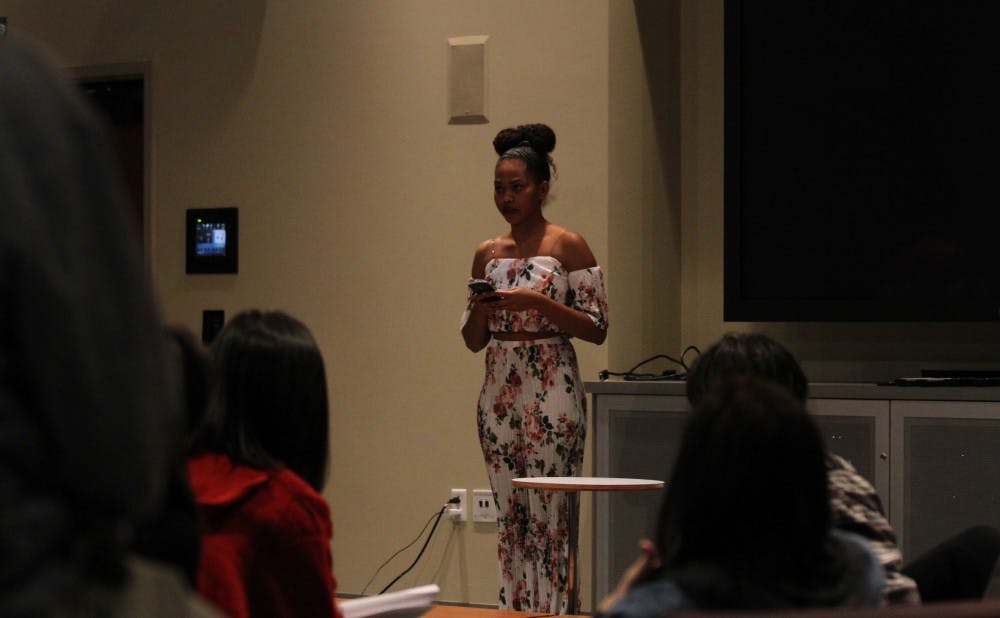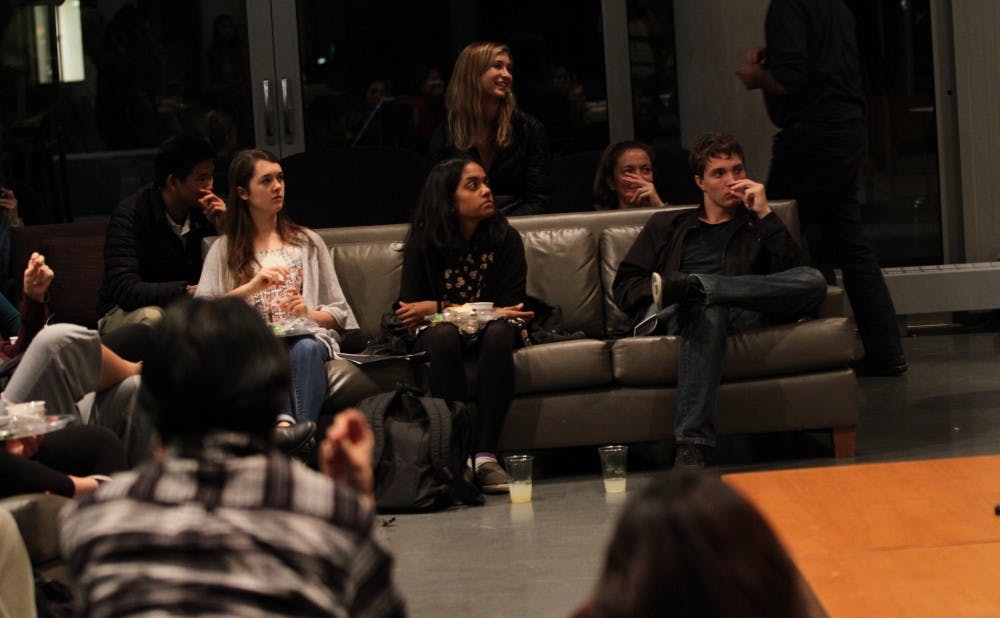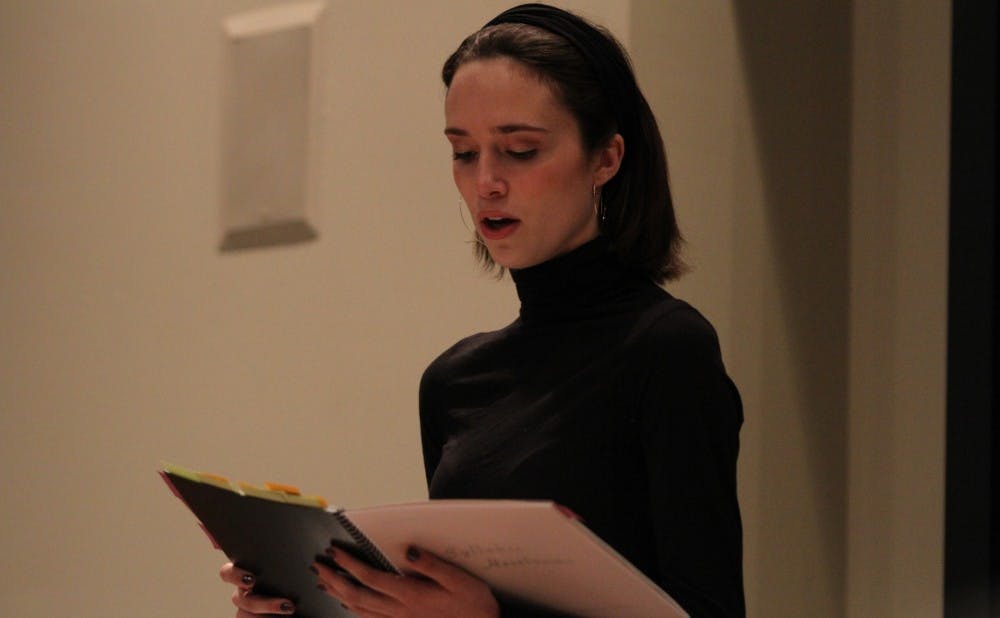The glass-enclosed Keohane atrium saw some poetry reading last Thursday night. The “Salon: An Evening of Poetry” event was hosted by The Archive and featured three undergraduate poets, Sophia Laettner, Aiyanna Kimble and Chloe Hooks, one graduate poet, Zijun Wang, and three professors, Joseph Donahue, Ray Barfield and David Need.
Founded in 1887, The Archive is the oldest student publication at Duke and one of the oldest continuously published literary magazines in the country. Publishing biannually, the magazine mainly features student poetry and short fiction as well as accompanying photography and visual art. It hosts this poetry reading event annually.

Ray Barfield: The intersections between medicine, philosophy and poetry
Ray Barfield is a professor of pediatrics and Christian philosophy and currently splits his time among three careers: pediatric oncologist, lecturer in the Divinity School and poet. He has over 90 publications in medicine, philosophy and poetry and read several poems from his book-length poetry collection “Life in the Blind Spot” at the event Thursday.
While on the surface it may seem that medicine is far from philosophy and literature, our medical system actually encompasses many philosophical human experiences and questions. For Barfield, his experience in the medical field has helped him spell out philosophical thoughts and conversations, which he then expresses by pen.
“At least in this country, most of the time, you are born — when a new human being shows up in the world — it happens in a hospital,” Barfield said. “It’s guided by clinicians. When you die, it very often happens in the hospital. ... When you become ill or lose something, you know, when you get cancer or some other disease, and you lose time. Or you lose someone that you love, or you lose a leg, or you lose your fertility, or you lose your sanity. In each of those cases, you’ll probably be attended by someone who’s in the medicine. And those are questions that affect everything — about our sense of who we are, how we show up, the mystery of departing, the question ‘Do I just disappear, or is there something else?’”
Poetry is meant to contain, in a symbolic way, a beautiful vagueness, a shimmering thought that is fleeting but that we nevertheless know is good. However, some criticize the frequent perception of obscurity and exclusiveness in poetry, as if it is not meant for people who are “not smart enough” to understand it. Barfield’s response was that sometimes obscurity is paradoxically a revealing veil, just like the way we clothe ourselves reveals something about us by covering. Other times, we’ve just got to dig for it, since after all, isn’t that is the fun part of poetry?

Zijun Wang: The contradictions of literary translation
Zijun Wang is a graduate student in the Liberal Studies department and came to Duke from China. A translator prior to starting graduate school, Wang likes translating her English poems back into her mother language Chinese; she read two language versions of her poem at the poetry night.
Translation is a hard thing to do, for it is impossible to perfectly translate one language into another. Something will be lost, something will be added and something will be interpreted slightly differently from what the author originally intended. Yet poetry is the hardest to translate among all forms of literature. Even written in the original language, it is already this immaterial thing in the air that is hard to grasp. Poetry is not the words on the page. It is the wetness in the air, a sudden wave of shiver or warmth, a shot of pain coming out of nowhere. Can you really translate that? Or are you essentially writing another poem when translating poetry?
“Both. I think both,” Wang responded. “Actually in translation skills, you can recreate the sense in poetry, especially poetry because poetry is something that you can imagine in different perspectives. … [The essential goal of literary translation is] to express what the author wants to express, but what the author wants to express may be interpreted by the translator. So that is a contradictory thing.”
The author is dead as soon as he finishes the writing — what that piece of writing means is no longer in his control, and the readers can freely interpret his message.
“In Chinese, [there is a saying about translation:] Xin, Da, Ya,” Wang said. “Xin means to be loyal to the original text. Da means the meaning has to achieve what the author wants to say … Ya, I think Ya is very important in literary translation because Ya means when you translate a poem, you have to have a poetic feeling inside.”
Wang also believes that poetry is a lifestyle. If you have love in your heart, you can write poetry. If you have beauty in your eyes, you can read poetry.
Get The Chronicle straight to your inbox
Signup for our weekly newsletter. Cancel at any time.

